Published
8 months agoon
By
zaghrah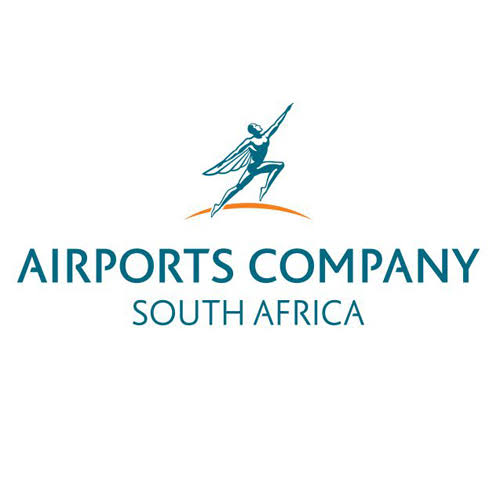
By all appearances, the Airports Company South Africa (Acsa) is plotting an ambitious comeback. At its 2025 stakeholder engagement session this week, CEO Mpumi Mpofu pitched a story of rebirth: upgraded terminals, rising revenues, and airports ready to fly again. But in aviation, optimism doesn’t always match altitude — and industry insiders say Acsa still faces turbulence on multiple fronts.
Mpofu highlighted the infrastructure roadmap and recovery plans with confidence, but one issue looms larger than most: jet fuel. The January fire at Natref, a major inland refinery, forced airlines to reroute inbound flights from OR Tambo International Airport, revealing just how brittle the country’s fuel supply chain is.
“South Africa is now 61% reliant on imported jet fuel,” Mpofu admitted, noting additional tank storage was being developed.
But aviation analyst Linden Birns is less convinced that tank space alone will fix the problem.
“If a ship’s late, the whole schedule breaks down,” he warned. “Acsa doesn’t control the entire chain. It’s Transnet, resellers, refiners everyone’s involved. It’s fragile.”
The closure of the Sapref refinery in Durban made things worse, leaving OR Tambo and other airports increasingly exposed to delays, volatility, and even fuel rationing.
Another elephant in the departure hall? Air Traffic and Navigation Services (ATNS). Mpofu made only passing mention of the state-owned air traffic body, despite months of complaints over flight delays and route redesign chaos.
“There’s a disconnect between Acsa’s goals and what ATNS can actually deliver,” said Aaron Munetsi, CEO of the Airlines Association of Southern Africa.
“When air traffic control is unstable, we lose schedule integrity. And schedule is all we sell.”
The ATNS CEO was recently suspended amid operational controversies, and until the organisation finds solid footing, Acsa’s turnaround will be tethered to uncertainty.
Acsa’s cash flow depends heavily on airline tariffs and non-aeronautical income like leases and parking. After years of stagnation, it’s been granted a reprieve: the capex ceiling has been lifted from R762 million to over R2 billion — but this comes at a cost.
Tariff hikes may boost Acsa’s books, but passengers and carriers will likely feel it in their pockets.
“Tariffs are a blunt instrument,” Birns warned. “International airlines will push back if service doesn’t improve.”
And Munetsi added that up to 29% of air travel costs in Africa are made up of fees, charges and taxes, many from government-linked entities like Acsa.
Missing from Mpofu’s update was any mention of her own qualification controversy, an issue that has stirred debate about leadership credibility in a critical state-owned enterprise.
Birns commended Acsa for facing the media and delivering a structured plan. “But turning the optics around is just one part of the job,” he said.
Confidence, in other words, has to be earned and performance must precede price hikes.
Globally, Africa’s aviation sector isn’t faring well. According to IATA’s 2025 outlook, African carriers are projected to have the lowest net margins in the world, with jet fuel 17% more expensive than the global average. Just 19% of intra-African flights are direct, underscoring how fragmented the continent’s skies still are.
“Acsa can’t thrive in a vacuum,” Birns said. “South Africa’s competitiveness depends on stable, affordable, efficient aviation services across the entire value chain.”
The blueprint is on the table. Mpofu’s Acsa has a rising balance sheet, a bolder capex ceiling, and a story of recovery to tell. But execution is everything.
Some airport facilities shuttered during Covid are still not operational. Flight delays persist. Inter-agency coordination remains fragile. And consumers may soon face rising ticket prices.
Acsa has lifted off — but the true test will be how it handles turbulence.
If fuel falters, air traffic stumbles, or tariff frustration grows too loud, this turnaround could stall before it even clears the clouds.
{Source: Daily Maverick}
Follow Joburg ETC on Facebook, Twitter , TikTok and Instagram
For more News in Johannesburg, visit joburgetc.com


South Africa’s aviation industry alarmed as SACAA records 43 incidents, 17 deaths this year
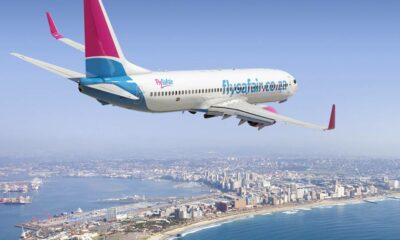

FlySafair B-BBEE Deal Sparks Debate Over State Control of SA Skies
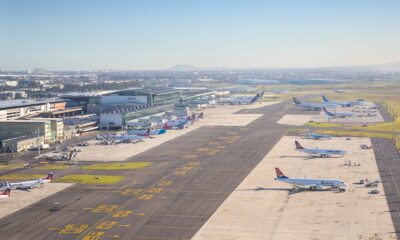

Airport Safety Fears Cast Shadow Over G20 as Insider Exposes Chaos at Acsa
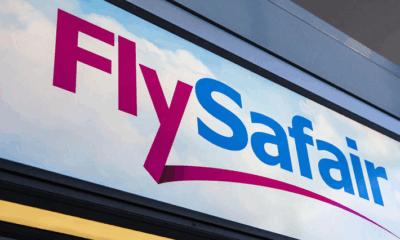

FlySafair Turns To AI To Keep Fares Low And Improve Customer Experience
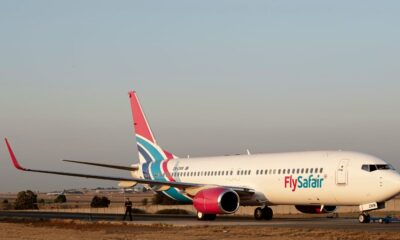

FlySafair Wins Court Reprieve in Landmark Ownership Battle
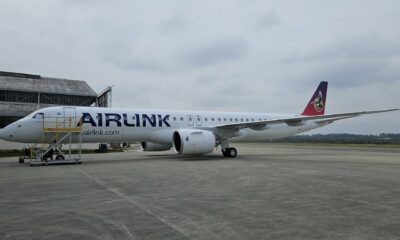

Airlink Fleet Expansion: New Embraer E195-E2 Jets and Competition Tribunal Challenges















